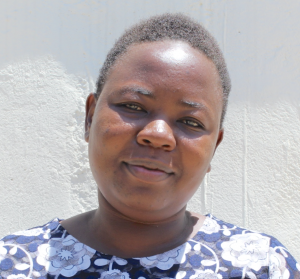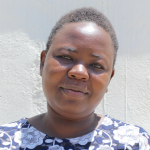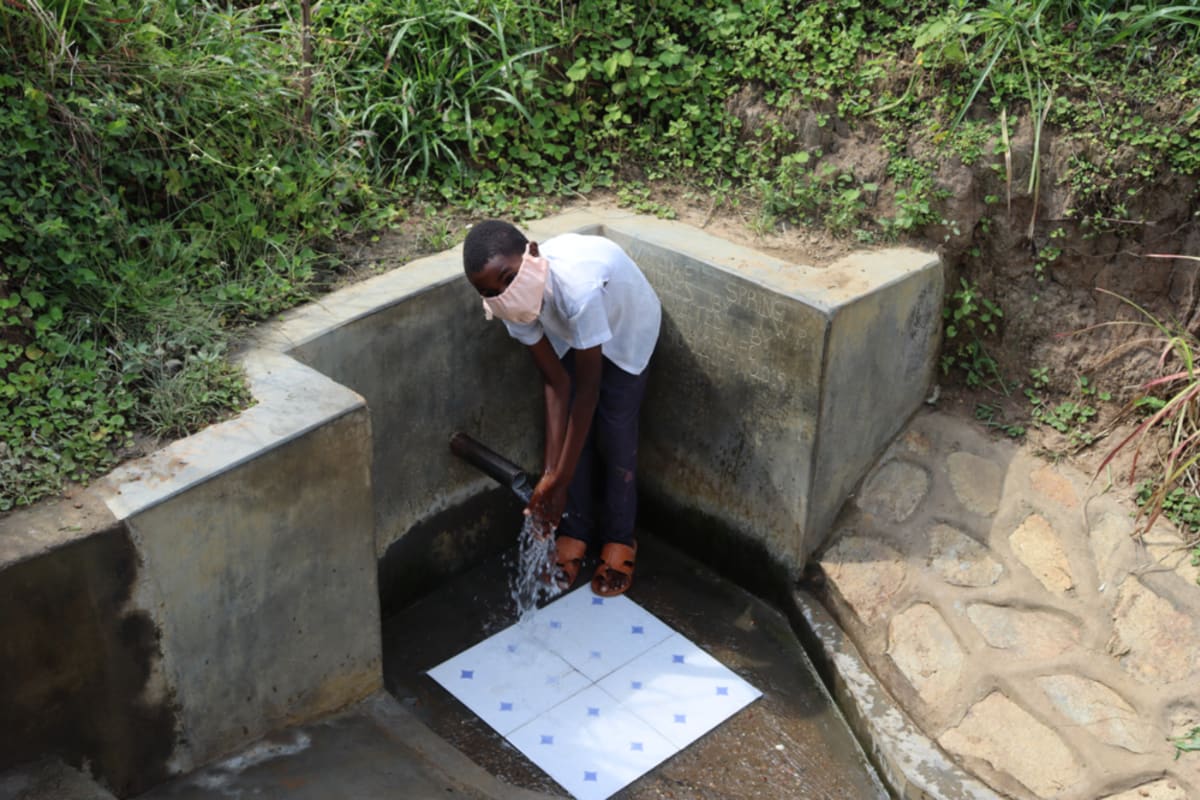It was around 10am in the morning on Wednesday when we first visited the people of Lukova Community. It was a bright, sunny day and this weather was ideal for a productive visit.
Lukova is a traditional rural settlement wherein farm holdings have gradually decreased due to the subdivision of land. The community is peaceful and unified. They get a lot of rain, making the area very green. Since most families are producers of maize, sugarcane, beans, and sweet potatoes, this rain is eagerly welcomed.
Because Lukova is a farming community, the day starts at 6am. Children prepare for school while parents prepare breakfast and do house chores. Able-bodied adults are on the farm for most of the day, but they take a break at lunch to clean the house, fetch water for cooking, and take their cattle out to graze. There's more farm work until dinner.
There are 280 people in this area who rely on Wasike Spring to meet all of their water needs. There is plenty of water at this spring, but it is not safe for drinking. After drinking this water, people suffer from typhoid.
Water collection is mainly done by the women or children. They use a jug to draw water from the unprotected spring and pour it into their jerrycans. Most of them dip their hands into the water containers while collecting, which further dirties the water they plan to drink.
Once the water's back home, some people have no other way to store water and just leave it in the same plastic container. Others have been able to purchase a larger plastic container of 200 liters, but the majority believe in storing drinking water in a traditional clay pot covered with a plate. They believe that this clay pot keeps water cooler.
The containers used to store water are not cleaned often, and unclean cups or jugs are dipped into storage containers. Some of these containers don't have lids, so they're open to dust and insects that crawl in and out.
Access to quality water is an important key to economic prosperity and better living standards. Dirty water makes people sick. This means people with small businesses like "mboga" (selling vegetables) will not open their businesses. Children will not attend school. Sickness derails economic activities, hence accelerating poverty levels.
"I have lived in this community for decades now and the only source of our water is this unprotected spring. This has been our only hope for the surrounding people here and it's only God's mercies that we are alive because this water is exposed to a lot of dust, farm chemicals, and even open defecation but still we use it," said Joash Nyongesa.
"Personally, I have spent a lot of money on medication for my family for curing waterborne disease such as diarrhea, stomachache, and typhoid. This project will be of much help because it will minimize such diseases and my people will now be healthy."
What we can do:
Training
"The matter of having toilets is crucial to creating a strong economy as well as improving health and protecting people's safety and dignity - particularly for women and girls," stated Mr. Henry Nyongesa.
"We as the people of Lukova Community have suffered a lot due to lack of access to clean drinking water and sanitation, along with the absence of good hygiene practices which leads to poor livelihoods within the community. So by addressing the sanitation challenge here we can improve not only the dignity of each individual, but also contribute to better health, safety, survival, and livelihoods for everyone."
Community members will attend hygiene and sanitation training for at least two days. This training will ensure participants have the knowledge they need about healthy practices and their importance. The facilitator plans to use PHAST (Participatory Hygiene and Sanitation Transformation), CLTS (Community-Led Total Sanitation), ABCD (Asset-Based Community Development), group discussions, handouts, and demonstrations at the spring. One of the most important topics we plan to cover is the handling, storage, and treatment of water. Having a clean water source will be extremely helpful, but it is useless if water gets contaminated by the time it’s consumed. Handwashing will also be a big topic.
Training will also result in the formation of a committee that will oversee operations and maintenance at the spring. They will enforce proper behavior around the spring and delegate tasks that will help preserve the site, such as building a fence and digging proper drainage. The fence will keep out destructive animals, and the drainage will keep the area’s mosquito population at a minimum.
Sanitation Platforms
On the final day of training, participants will select five families that should benefit from new concrete latrine floors.
Training will also inform the community and selected families on what they need to contribute to make this project a success. They must mobilize locally available materials, such as bricks, clean sand, hardcore, and ballast. The five families chosen for sanitation platforms must prepare by sinking a pit for the sanitation platforms to be placed over. All community members must work together to make sure that accommodations and food are always provided for the work teams.
Spring Protection
Protecting the spring will ensure that the water is safe, adequate and secure. Construction will keep surface runoff and other contaminants out of the water. With the community’s high involvement in the process, there should be a good sense of responsibility and ownership for the new clean water source.
Fetching water is predominantly a female role, done by both women and young girls. Protecting the spring and offering training and support will, therefore, help empower the female members of the community by giving them more time and efforts to engage and invest in income-generating activities.

 Protected Spring
Protected Spring
 Rehabilitation Project
Rehabilitation Project












































